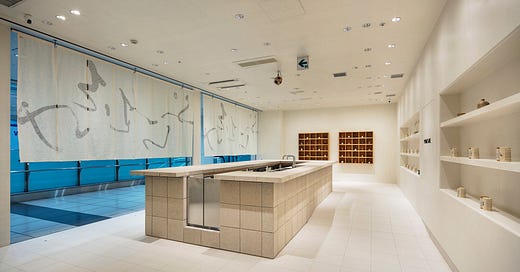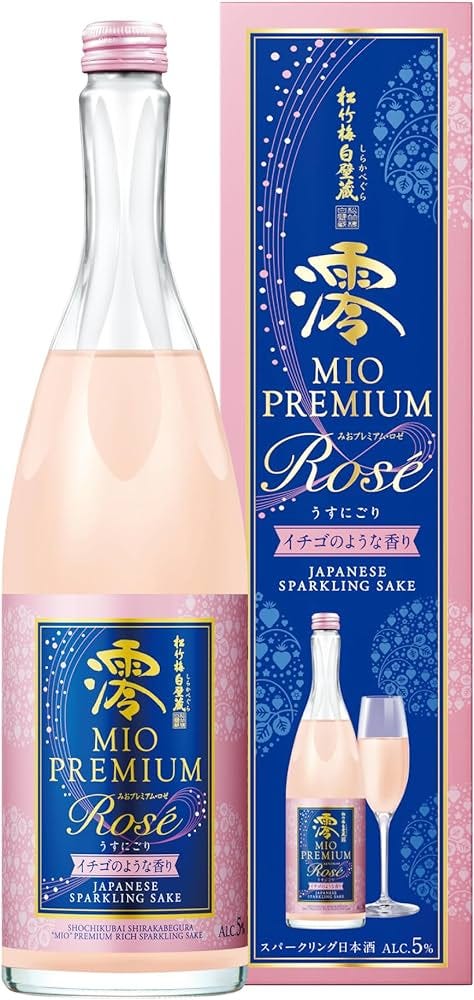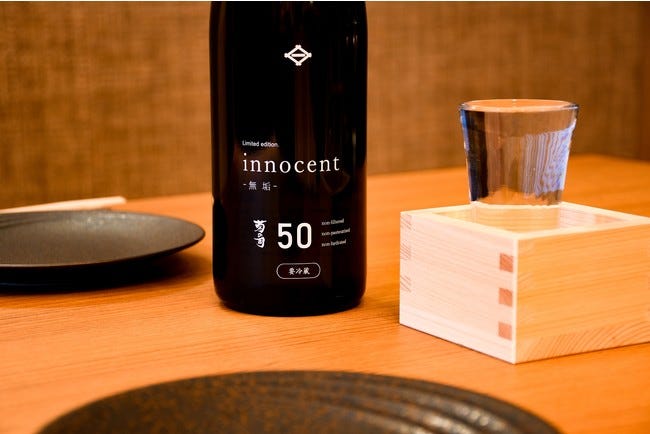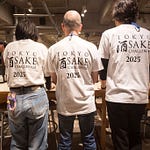Welcome to Issue #109 of SIN.
The cherry blossoms are finally starting to bloom in this late onset of spring, but better late than never!
Well, sometimes “better late than never”. The recent fiasco in the EU which saw Japanese sake on the chopping block as a potentially banned import was a bit of a heart-stopper - even if for just a brief moment.
However, as was outlined in a recent Nikkei Asia article, the issue did shine a light on some of the holes in Japan’s efforts in helping those outside of Japan to understand sake better. Despite all of our best efforts, the intricacies of sake in terms of category, packaging and brand recognition are still not fully understood in circles where such awareness is imperative.
For many of us, seeing sake still being categorized for import or tax purposes as a wine or a spirit - when it is neither - can be frustrating, however not all of the onus should be on non-Japanese sake supporters. The Japanese government needs to step to help improve understanding of sake and protect it as much as possible. Whether this means appellation-style commercial protection of grading terminology and provenance a’la champagne, cognac or mezcal can be left up to debate, however it’s a conversation worth having, and one that should be had sooner rather than later, which may end up being be too late.
But for now, here’s the news…
Beni Kōji Health Concerns
Osaka- Recently Japanese authorities ordered three different “red rice” dietary supplements produced by Osaka-based, Kobayashi Pharmaceutical to be withdrawn from stores nationwide following the deaths of five and the hospitalization of more than 100 in what is believed to be related to the use of beni koji (red koji).
Scientists have reported that beni-koji, or rice fermented with red spores, can produce unsafe levels of citrinin – a toxin that can cause kidney dysfunction.
The reports sounded alarm bells for many sake consumers that enjoy pink or red colored sake varieties. Fortunately, most akazake or red sake products achieve their color through the use of red, purple or black rice or unique yeast strains rather than the type of kōji used. However, Takara Shuzō has been forced to recall 100,000 bottles of its hugely popular pink sparkling Mio Rose product, which was released in January this year.
The sake is reportedly made using a coloring agent sourced from Kobayashi Pharmaceutical.
There have been no reports of sickness due to consumption of Mio Rose, however the brewery has urged consumers that have purchased the sake not to drink it.
JG: Our condolences to the families of the few people that lost their lives due to this. Let us all hope that the companies involved do the right things and that the situation improves. Also, I hope that proper information about what is safe and what is not gets conveyed to consumers.
Ishikawa Update
Ishikawa- It’s not all over in Ishikawa Prefecture following the earthquake that devastated the region at the beginning of the year.
While many breweries around the country are knocking over their rice steamer “koshiki-taoshi” to celebrate the end of the brewing season, a number of breweries in Ishikawa have had to find alternative methods to help them finish brewing for the year.
Sakurada Shuzō (Taikei) has found refuge with Shata Shuzō (Tengumai) where the two breweries have brewed in collaboration using rice found in the debris of Sakurado Shuzō’s collapsed brewing facilities.
Along with the rice, around 1000 bottles of Noto Hatsuzakura honjōzō were recovered following the disaster.
In an effort to widen Sakurada Shuzō’s appeal beyond its customer base of its immediate local area, the recovered sake was blended with Tengumai Junmai and released as a special collaboration between the two breweries.
Profit from the sales of the sake will go toward the recovery of Sakurada Shuzō.
Matsunami Shuzō was another brewery unable to continue following the earthquake, however it found an ally in Tsuchida Shuzō in Gunma Prefecture, which stepped forward to support the brewery by brewing sake using Noto rice according to the specs of Matsunami Shuzō. The sake will be ready to ship in early June.
Meanwhile, Yukawa Shuzōten in Nagano completed surrogate sake production for Hakutō Shuzōten. The two breweries share a 15-year friendship that led to Yukawa Shuzōten offering a helping hand following the quake.
The brewing collaboration began in February using Hakutō Shuzōten’s rice and brewing specs.
Pressing was completed in March with 2300 bottles of 720ml being produced for imminent release.
Sources - Sake Times | NHK | Shimintimes
JG: As I have said before, such stories are so inspiring and uplifting. I hope that the breweries being helped are able to recover fully, even if that takes some time. While I accept that not all may be able to do that, I still hold out hope.
櫻田酒造(大慶、能登初桜), 車多酒造(天狗舞), 土田酒造 , 松波酒造 (大江山), 湯川酒造店(木曽路), 白藤酒造店(奥能登の白菊)
Kikuno Tsukasa M&A Revival
Iwate- As the oldest brewery in Iwate Prefecture, Kikuno Tsukasa Shuzō has a long and storied history. This story entered a new chapter in 2021 when the brewery was acquired through M&A following years of financial difficulty.
Kikuno Tsukasa Shuzō’s new parent company, Kōraku KK has other business interests in restaurants, pachinko parlors and other fields, however this is the group’s first foray into sake.
Since the merger, the brewery has taken a fresh approach to business and marketing sake. Kiwako Yamada, the daughter of Kōraku KK CEO, Eisaku Yamada has taken over brand concept and marketing for Kikuno Tsukasa Shuzō.
Armed with a background in IT and no knowledge of the sake world, Yamada learned quickly from the brewing staff as she guided the brewery’s new direction of streamlining the product range from 50 products down to 25 under three labels: Kikuno Tsukasa, Shichifukujin and its newest line, Innocent.
Innocent, was first released in October 2021, featuring a range of muroka namagenshu ginjō sake with robust body and soft sweetness.
In 2022, the brewing facility moved from Morioka City to Shizukuishi where underground springwater from Mt. Iwate is used for brewing. In 2023, the brewery introduced a quick freeze process for its sake which helps maintain freshness without affecting the quality.
Listen to this episode with a 7-day free trial
Subscribe to Sake Industry News to listen to this post and get 7 days of free access to the full post archives.













